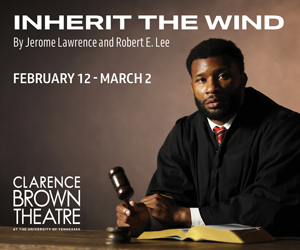We’ve been feasting on a lot of Beethoven as of late, thanks to the Beethoven250 anniversary events celebrating the composer’s 250th birthday this year. From the UT Symphony Orchestra this season and last, we’ve heard Beethoven’s Seventh and Ninth Symphonies, the Choral Fantasy, and from the UT School of Music faculty, a host of violin sonatas, piano trios, and other chamber works.
The latest Beethoven came Sunday afternoon—a marvelous performance of the Overture to Coriolanus under conductor James Fellenbaum—that served as preface to an annual concert that showcases the School’s Concerto Competition winners. As it turns out, this annual concert is one of the most intriguing of the season for the simple reason that it is a glimpse at possible stars of tomorrow. The School’s competition is divided into four categories: vocal, strings, winds, and piano/percussion.
Tenor Wayd Odle was the winner in the vocal category and clearly represents a singer on the verge of a substantial vocal career. His performances with the UT Opera Theatre have been impressive and he has opened eyes and ears with recent performances with Knoxville Opera. His selection—an intriguing choice—was “Tarquinius does not wait” from Benjamin Britten’s The Rape of Lucretia.
The winner in the strings category was violinist Yeiji Choi who performed the first movement from Johannes Brahms Violin Concerto in D Major. Choi handled the multitude of Brahmsian string textures and lyricism with an impressive style and energy.
A crowd favorite was saxophonist Darius Edwards in the Winds category, performing the virtuosic first movement from Pierre-Max Dubois’ Concerto for Alto Saxophone and Orchestra.
Concluding the afternoon was a stunning performance of the first movement from Tchaikovsky’s Piano Concerto No. 1 in B-flat Minor by pianist Katherine Benson. Benson is a student of UTSOM professor Chih-Long Hu, pursuing an artist’s certificate. She did her undergraduate work at the Eastman School of Music and received a Masters of Music degree from Northwestern University.







Thank you for your excellent review of the UT Concerto Competition Winner’s concert with the UT Orchestra. I agree the winners played very well and Katherine Benson’s Tchaikovsky was indeed “STUNNING!” The comment that we have been feasting on a lot of Beethoven lately due to the Beethoven250 events, including the UT faculty presenting “a host of violin sonatas, piano trios, and other chamber works” curiously left out the fact that a piano faculty member also recently performed three piano sonatas one from each period, and accompanied them with an extensive PowerPoint presentation that explored the question as to what makes Beethoven’s music so compelling. The answer touched upon all kinds of things:
• Diminished 7th chords, dominant 7th chords, and appoggiaturas and how Beethoven treats them differently from Haydn and Mozart
• Innovations to sonata form, including experimentation with keys and modes
• dominant prolongation
• emotionally charged trills and how Beethoven uses them differently from Mozart
• the main differences between classicism and romanticism in a nutshell
• the French Revolution and its keywords of liberty, equality, fraternity
• the opera Fidelio and how it expresses things important to Beethoven
• Beethoven’s deafness
• the Heiliginstadt testament
• Beethoven’s use of genres from the vocal world, such as recitative and aria
• Beethoven’s use of fugue
Those who were present said they not only immensely enjoyed the playing (some calling it the concert of the year) but also that the remarks helped them understand Beethoven’s music much better.